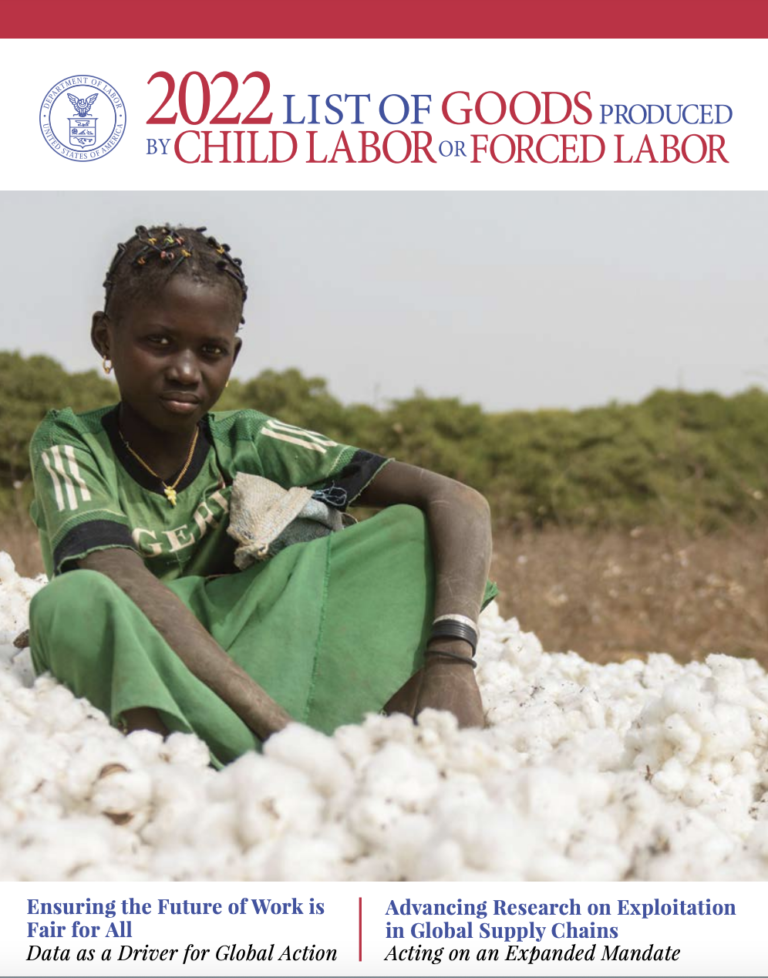The U.S. Department of Labor (USDOL or the Department) has produced this tenth edition of the List of Goods Produced by Child Labor or Forced Labor in accordance with the Trafficking Victims Protection Reauthorization Act (TVPRA), as amended.
The TVPRA requires USDOL’s Bureau of International Labor Affairs (ILAB or the Bureau) to “develop and make available to the public a list of goods from countries that [ILAB] has reason to believe are produced by forced labor or child labor in violation of international standards” (TVPRA List or the List; 22 U.S.C. § 7112(b)(2)(C)). It also requires submission of the TVPRA List to the United States Congress not later than December 1, 2014, and every 2 years thereafter (22 U.S.C. § 7112(b)(3)).
The Frederick Douglass Trafficking Victims Prevention and Protection Reauthorization Act of 2018 expanded ILAB’s mandate to require the TVPRA List to include, “to the extent practicable, goods that are produced with inputs that are produced with forced labor or child labor” (22 U.S.C. § 7112(b)(2)(C)).
The TVPRA directs ILAB “to work with persons who are involved in the production of goods on the list…to create a standard set of practices that will reduce the likelihood that such persons will produce goods using [child labor or forced labor],” and “to consult with other departments and agencies of the United States Government to reduce forced and child labor internationally and ensure that products made by forced labor and child labor in violation of international standards are not imported into the United States” (22 U.S.C. § 7112(b)(2)(D)–(E)).

